The Karakoram Anomaly Project: Glaciers, Scientists, and Near-Death
From studying glacial lakes in the world’s tallest mountain range, to attempting a 7,530m peak, these mountaineering scientists assess the risk of glacial lake outburst floods.

This feature was first published in Issue 10 of The Outdoor Journal in 2016.
Towards the border between China and Pakistan lies the spectacular valley of Hunza. Famed for its apricots, Hunza falls in the shadow of Rakaposhi, a 7,790m giant named after the mist that tumbles down its north face. In the northern reaches of Hunza is a little known valley called Shimshal.
In the past, Shimshal’s secluded nature made the valley a notorious hang out for raiders and thieves. According to one British official, the ‘kanjutis’ were ‘never shy of shedding innocent blood before the plunder.’ Much to the ‘Britisher’s’ irritation, these raiders were untraceable, disappearing into the high mountains that surround the valley.
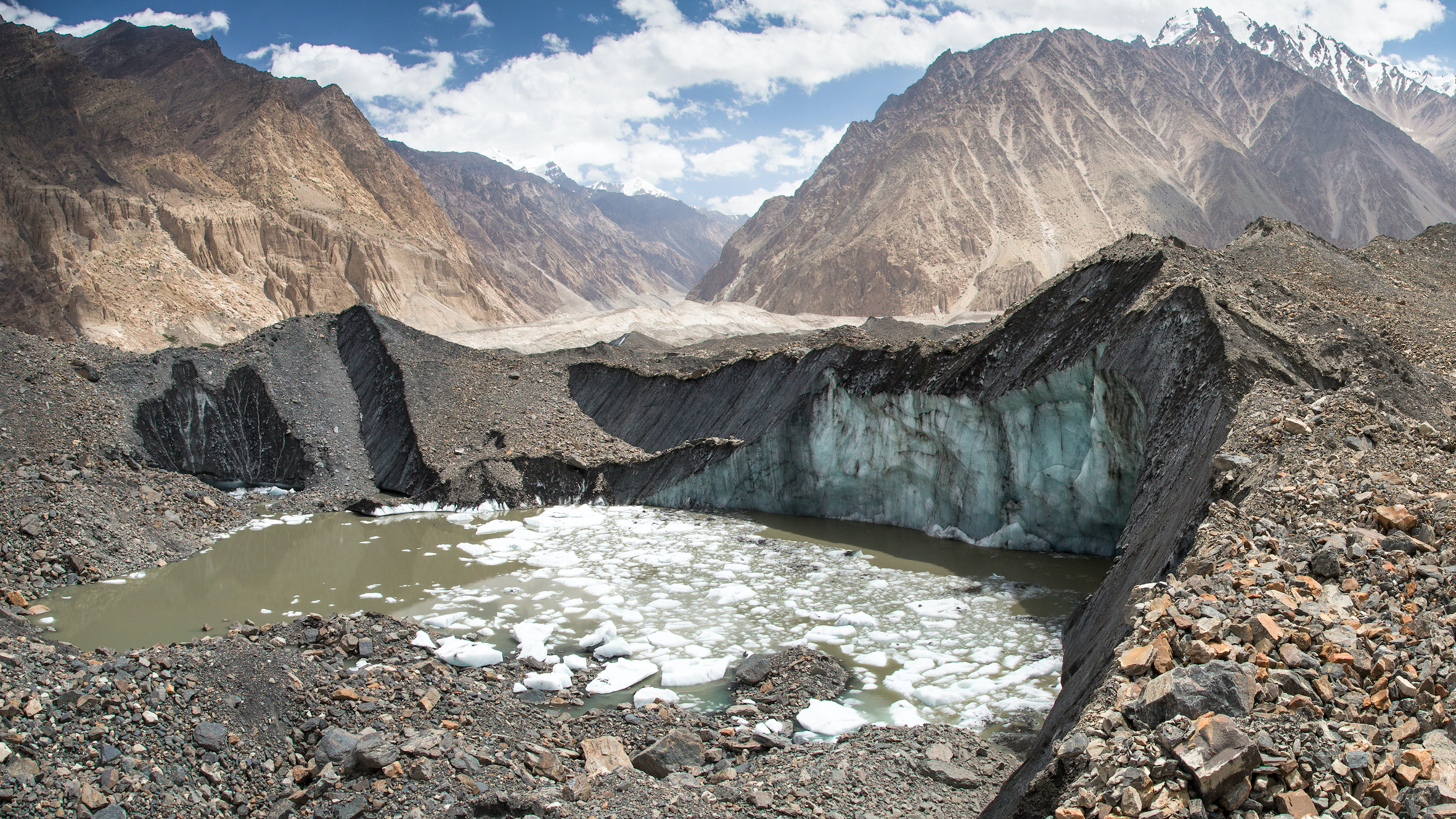
Whilst the raiders have long since moved on, Shimshal remains notorious for another reason. Devastating floodwaters periodically roar from the valley’s entrance, destroying houses and livelihoods in Hunza downstream. These floods are caused by the massive glaciers inside Shimshal, which cause a little known but deadly phenomenon called glacial lake outburst floods. That was why I was there.

I was part of The Karakoram Anomaly Project, a Royal Geographical Society expedition to explore Shimshal. The project was to assess the immediate danger of GLOFs in Shimshal, and communicate the risks to the local people. To raise awareness for the Project, we would attempt to climb the previously unclimbed, un-attempted north face of Yukshin Gardan Sar, a 7,530m behemoth which guards the Karakoram’s northern reaches.
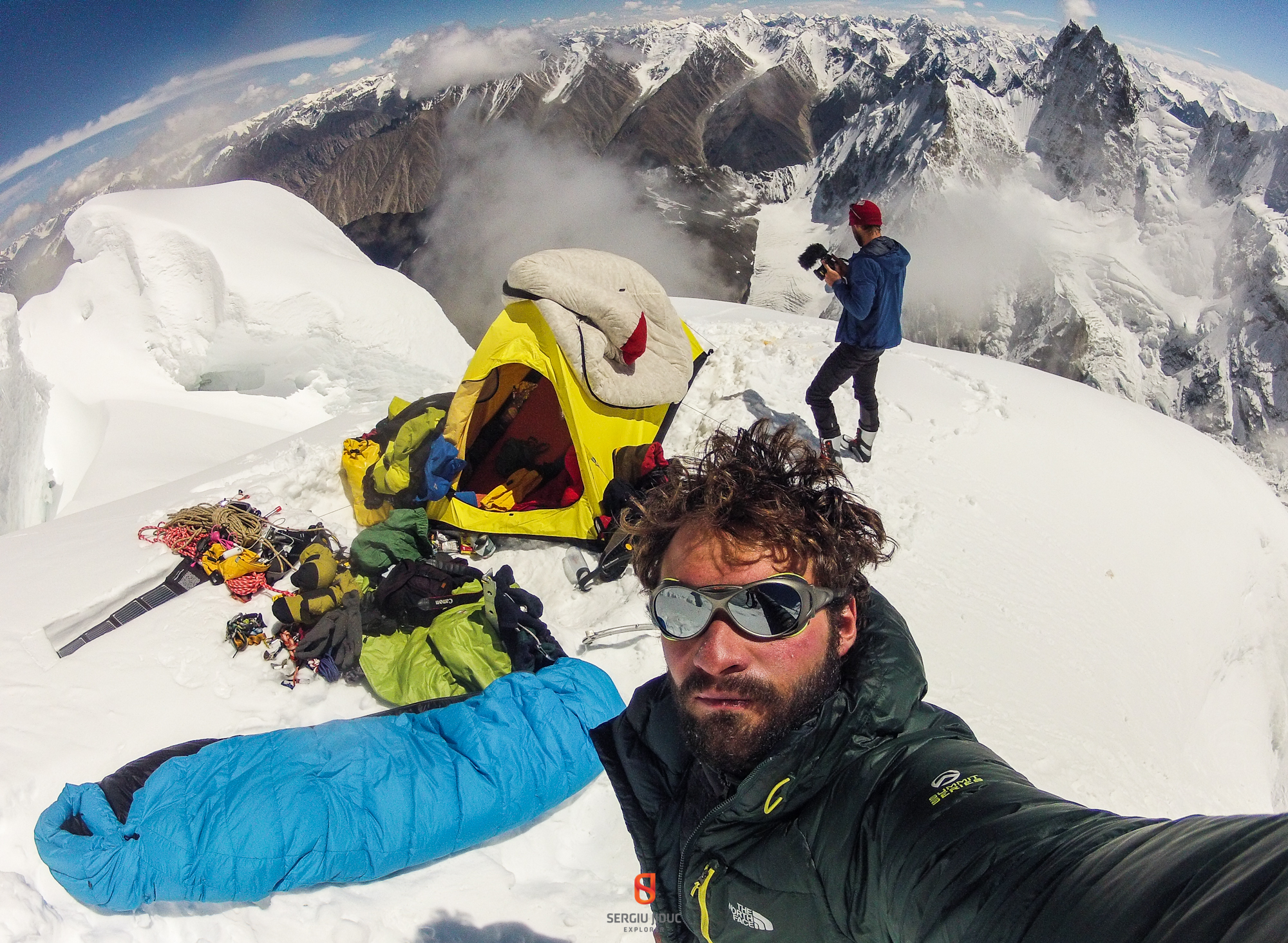
A fall here would mean a swim in the freezing swirling water below.
Along with mountaineer and explorer Sergiu Jiduc, photographer Tim Taylor and cinematographer Mat Farrell, I spent two months in this desolate and beautiful valley. My story begins at the entrance to the Shimshal gorge, the spectacular and imposing entrance to the eponymous valley. Here the Shimshal River snakes between vertiginous cliffs, into which a dirt track has been blasted. From afar you would have no idea that there was a valley here at all…
We loaded our four-by-four Toyotas with our equipment and headed for the valley entrance. We drove for about an hour before we reached a roadblock. The previous night a landslide had covered the road with mountains of fine gravel. Our four-by fours were no use here. We stepped quickly to move our equipment across this dusty earth, which shifted continuously beneath our feet. A fall here would mean a swim in the freezing swirling water below.
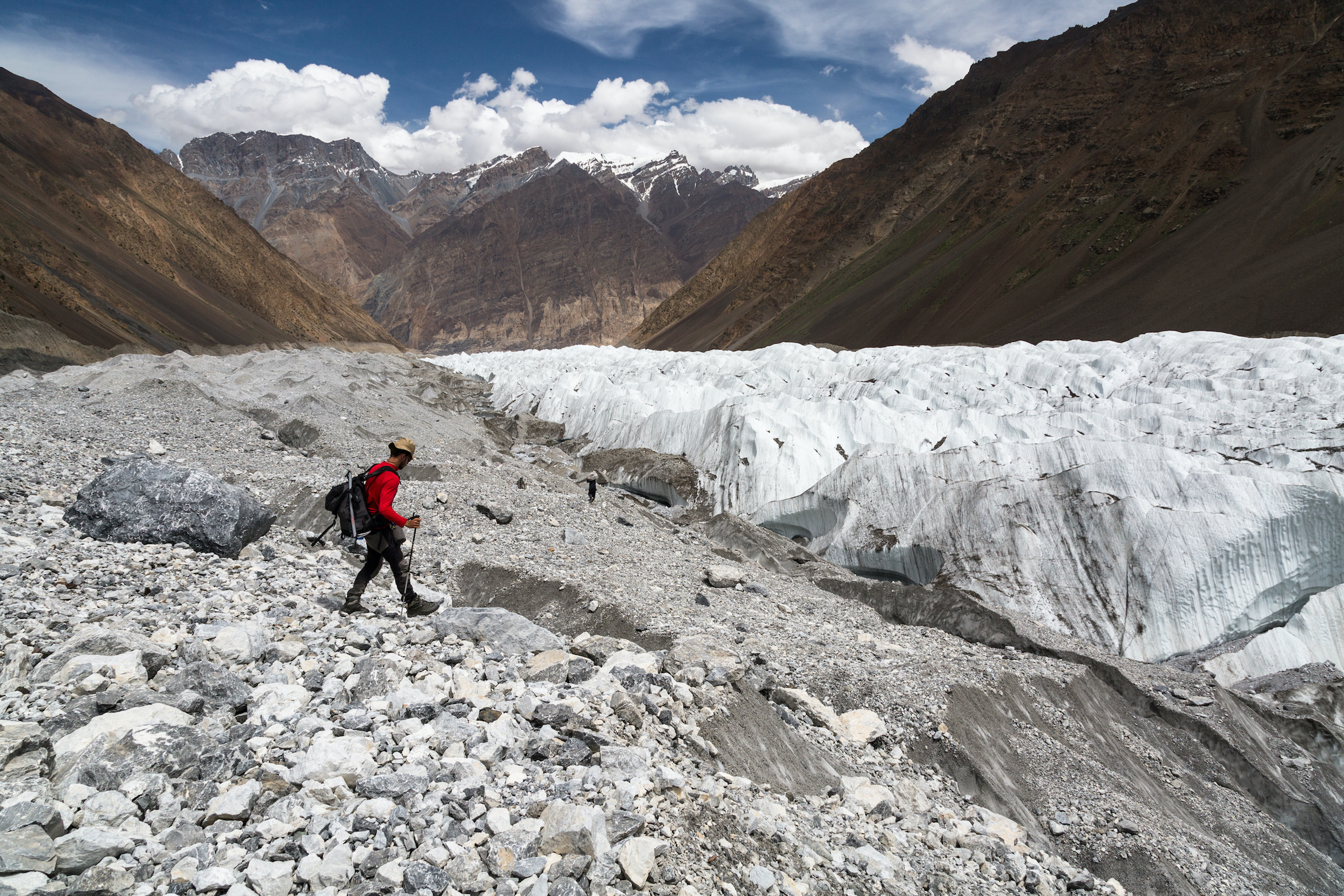
Shimshal in summer is a good approximation of paradise on Earth.
After a two-hour wait we clambered aboard a solitary Wallis Jeep, leaving behind all of our equipment and our Pakistani Team. They were to come behind by tractor with our kit. We drove on for about three hours. Eventually we reached a bridge that had been destroyed by flooding. We had to ford the river. Remarkably our driver managed to get his Wallis Jeep through the water without much fuss. For our part we stripped down to our underwear and waded across clutching our shoes. The water was cold enough to make you draw breath.

Another two hours passed before we arrived in Shimshal Village. The village is a green idyll, an oasis of fields and trees amongst desolate mountains. There is only one road, and the village subsists entirely on its own produce. When we arrived orange evening light was kissing the tops of the wheat, which swayed as if enchanted. From the perspective of an outsider at least, Shimshal in summer is a good approximation of paradise on Earth.
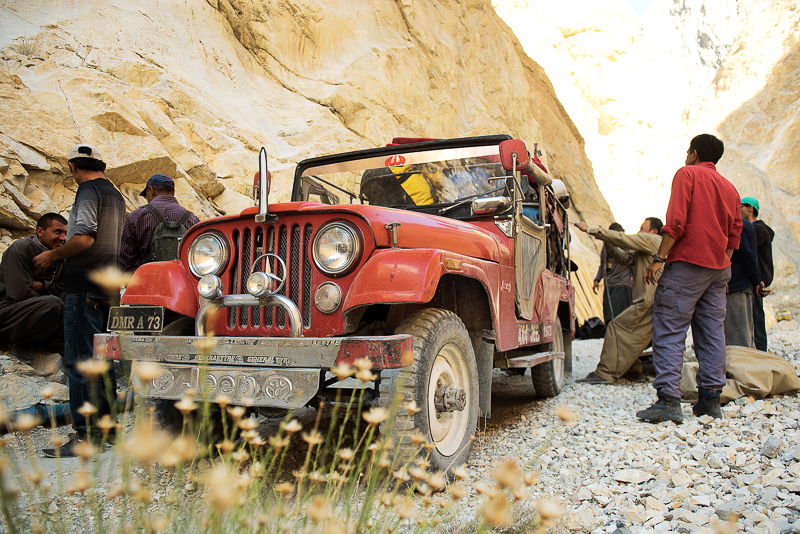
They eeyored loudly to one another, as if co-ordinating a resistance to their pitiless task.
For two days we made plans to trek to our base camp. On the day of departure we rose at 6am to find fifty porters outside our home stay. Animals accompanied them – two yaks, nine donkeys and a goat. The soft morning sun glistened on the animal’s coats. The reluctant donkeys and yaks were loaded with our equipment and supplies. We watched the porters and animals set off towards the Yazghil glacier, and after breakfast we followed on.
We caught up with them at the snout of the glacier. The yaks, well adapted to life in the mountains, walked straight over the glaciers without slowing or changing direction. The donkeys, on the other hand, were struggling across the ice. They eeyored loudly to one another, as if co-ordinating a resistance to their pitiless task. Soon they were all trying to sit down, defeated. We helped push and lift the poor creatures across the steeper ice.
Having crossed Yazghil glacier, the Shimshal Valley widens and becomes both very dry and very hot. About half way across my water ran out, and I cursed myself for not taking the opportunity to refill at Yazghil, now a slither of brilliant white in the distance.
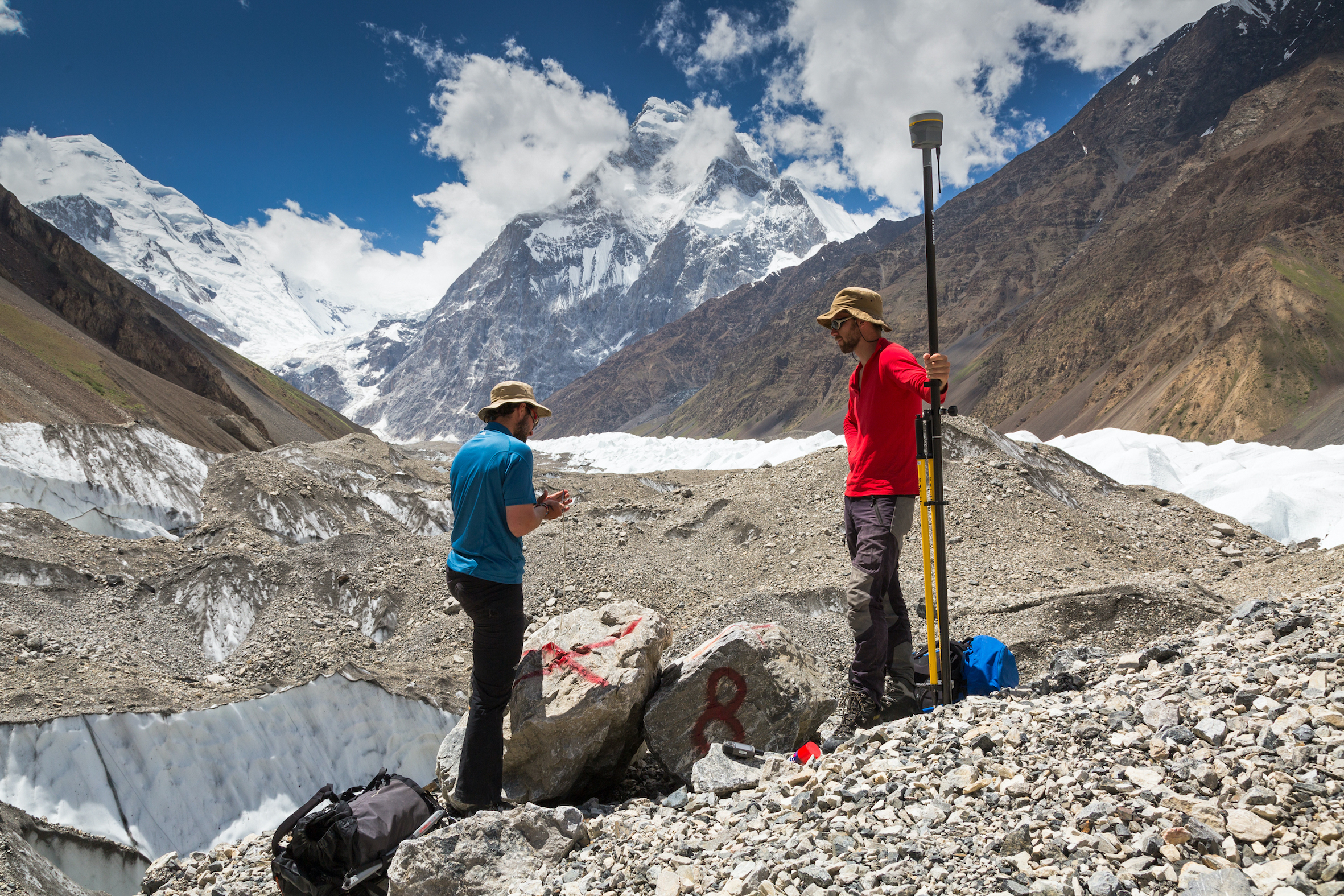
Reaching the far end of this part of the valley, where the mighty Khurdopin-Yukshin Gardan glacial system comes down to meet the Shimshal River, we met a few porters who had remained ahead of us. They were sitting down, and looked as if they had no intention of continuing. Our mountain guide Ali told us that the porters wanted to stay here for the night and continue the next morning. We spent the night under a million stars.

The final leg of our journey to base camp required hiking over the snout of Khurdopin glacier and then up the western edge of Yukshin Gardan glacier. It was hard going. The boulders that cover Khurdopin gave way as we walked over them.
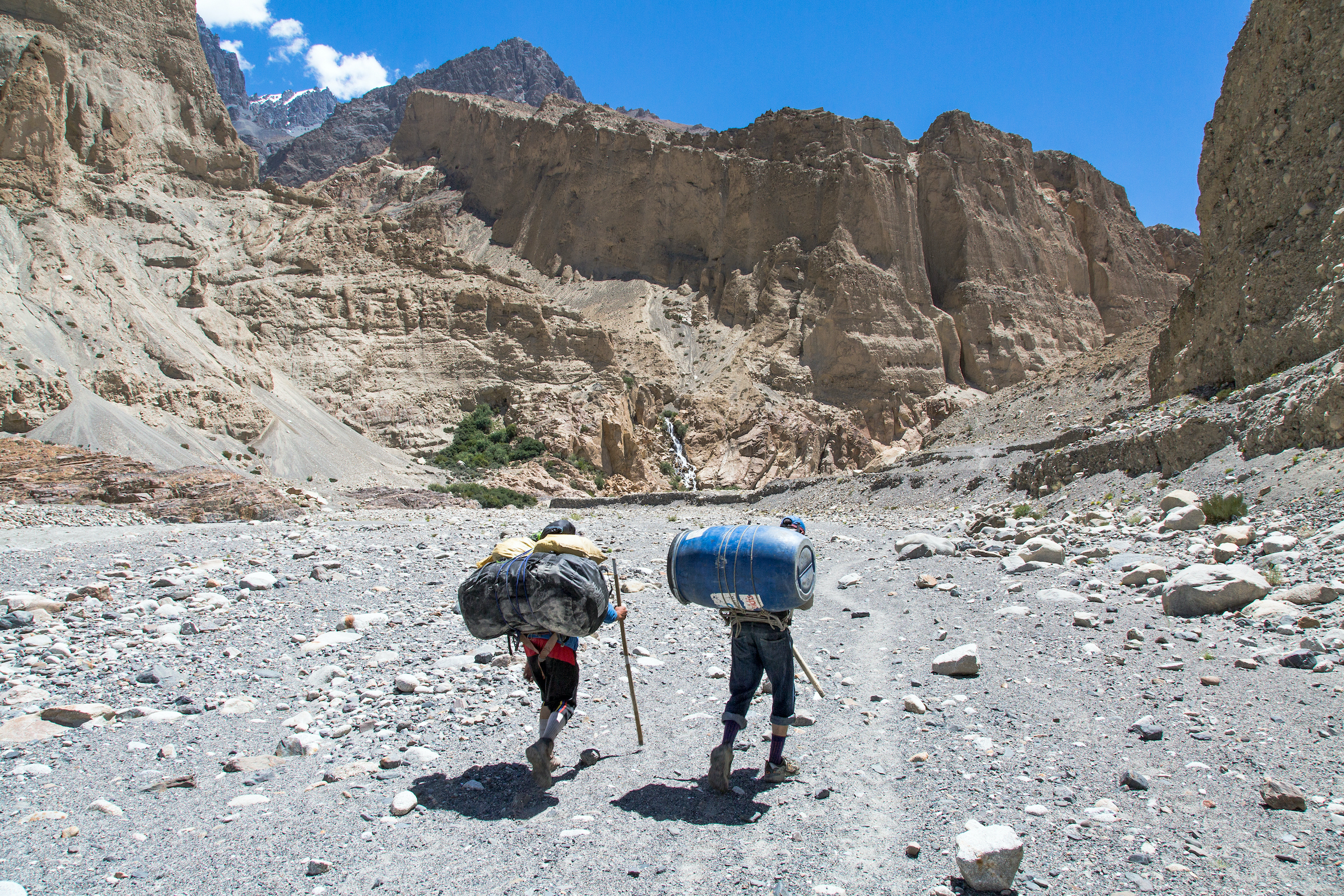
One boy threw a punch at a porter and blood oozed from a wound under his eye.
We reached the location that was to become our camp for two months just after noon. Compared to the surrounding areas the base camp was lush. Gnarled (and mostly dead) trees provided excellent wood for fire, and the base commanded excellent views south towards Yukshin Gardan Sar and Kanjut Sar, the 26th highest mountain on earth.
Our tents were soon erected, including a spacious mess tent for eating and socialising, and a kitchen tent, in which our Pakistani team also slept. Things immediately began to feel homely. Our porter caravan continued to arrive for another few hours.

Once all the porters arrived it came to the issue of payment. The Shimshalis began to argue about who should receive the money that Ali had bought, which wasn’t enough to cover them all. Cash points are hard to come by in the Karakoram. Soon there was shouting, and a fracas ensued. One boy threw a punch at a porter we had been walking with, and blood oozed from a wound under his eye. Feeling intimidated, we stayed quiet whilst everyone calmed down. No one directed aggression towards us in any way; the fighting was between Shimshalis.
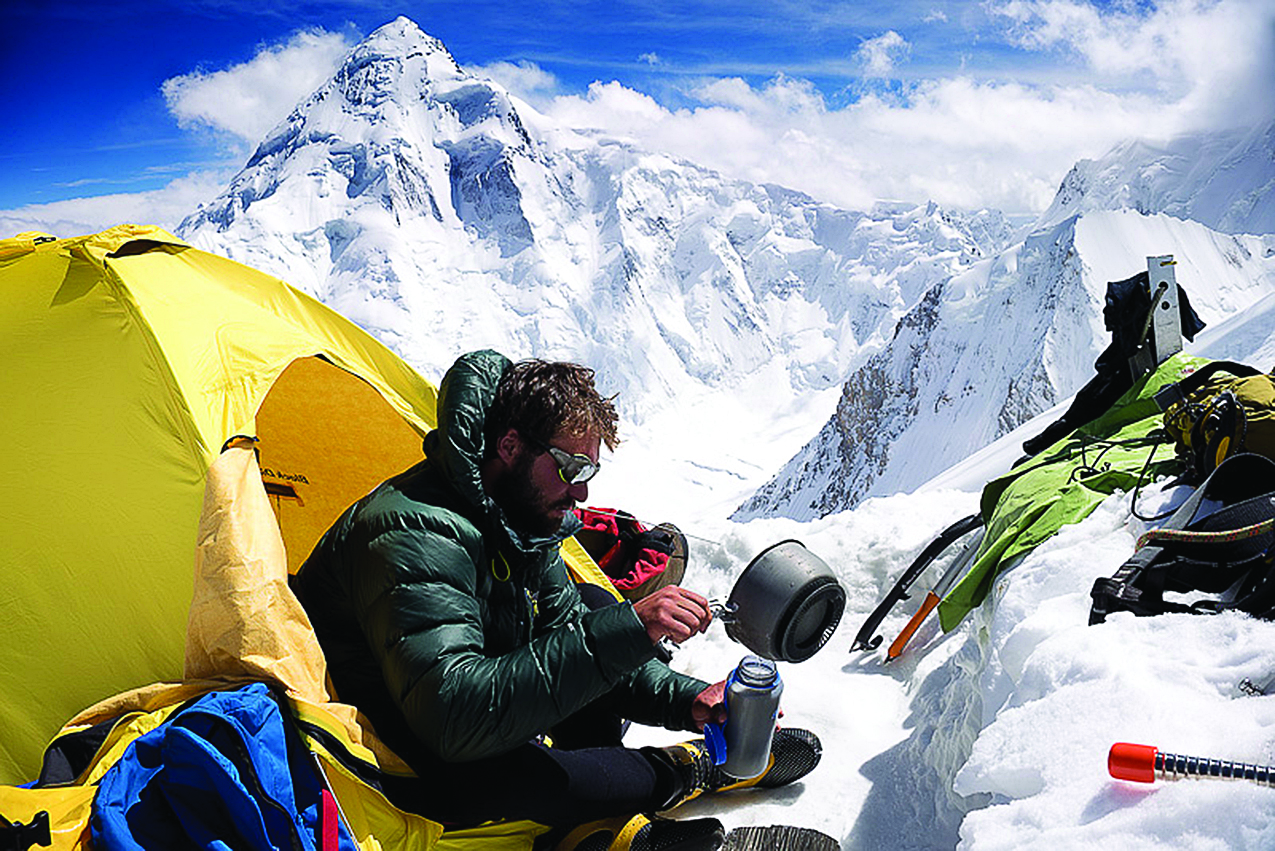
"No-one carries $2000 in Pakistan!" he barked.
Eventually the dispute was sorted. It was decided that the younger porters – who had to go off to school in the coming weeks – would be paid first, and the elders who could afford to wait would be paid second. Having been paid the porters left quickly. Ali was angry, cursing the villagers and telling us that this would never have happened in Baltoro. "No-one carries $2000 in Pakistan!" he barked, his fierce eyes shining brilliantly from his moustachioed face. Still, we had reached base camp! Our journey was complete and we felt eager to get to work.
We spent the coming month completing the scientific objectives of the Project. We spent many days moving painstakingly across the behemoth glaciers we were studying. Towards their snouts the glaciers were covered with grey debris, which blended with brown hillsides to give the overwhelming impression of dreariness. The sun seemed to beat down with extra strength on the glacier, and the dusty air clogged our throats.

The difficult terrain was compounded by the need to carry our GPS system wherever we went. In order to understand how the glaciers in Shimshal are changing, we needed to complete a velocity map of the glacier. To do this we measured the exact locations of 50 points over ten square kilometres with a high precision Trimble GNSS device, and then returned 3 weeks later to measure those same points again. The Trimble, although only about 8kg, seemed to get heavier as the weeks wore on.
"There are a lot of ways to die here", remarked Sergiu.
We could often hear the glaciers vital signs as we worked. A constant shifting and creaking came from within, and it was difficult not to think that the glacier was breathing. Occasionally the glacier would grumble, and an ice bridge would collapse or rocks would tumble.
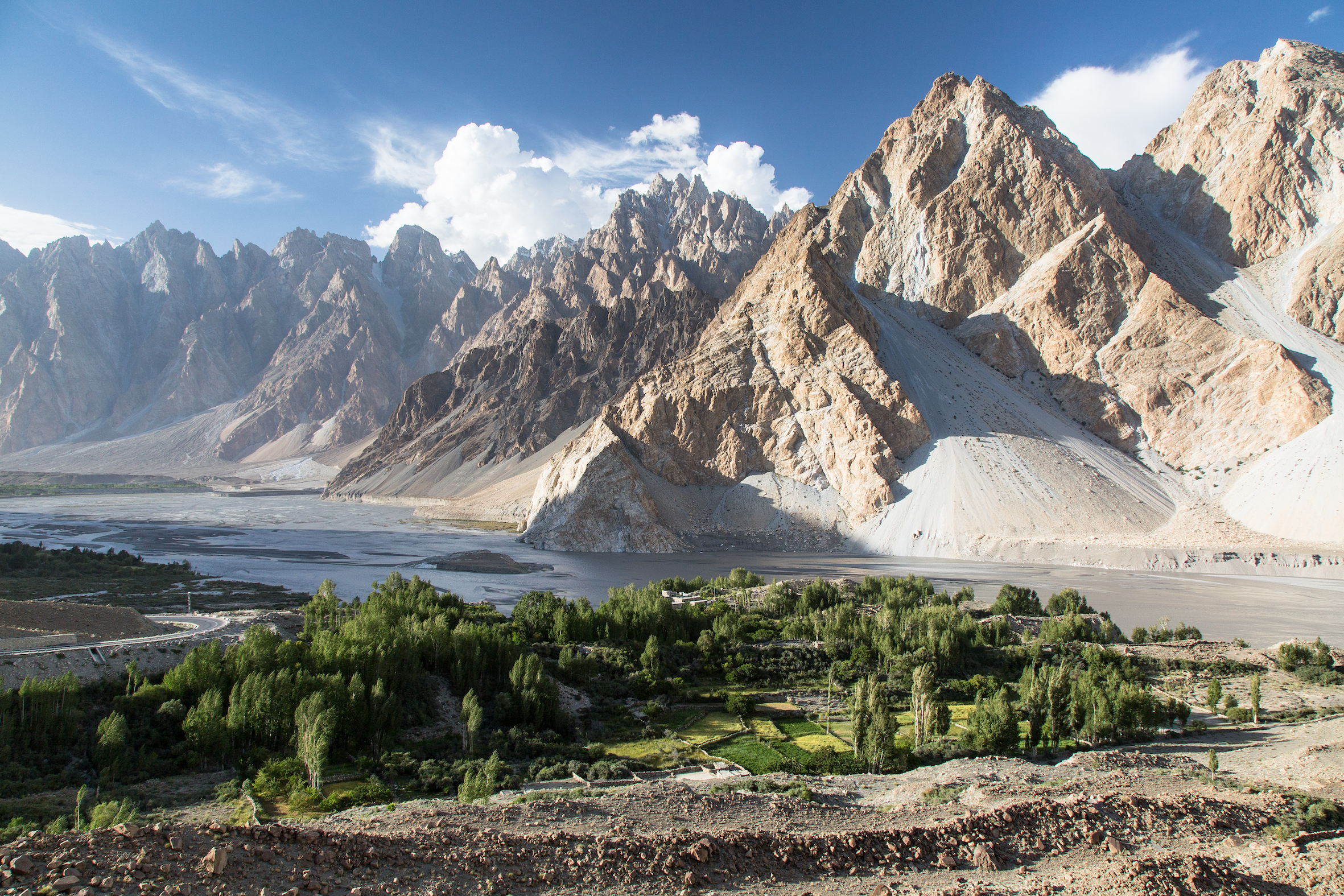
"There are a lot of ways to die here", remarked Sergiu. We had seen a car sized boulder break loose from the ice, and free fall 50m into a glacial lake. The resulting explosion of ice and water sent shock waves in all directions. The glacier groaned and heaved. The ice beneath our feet felt unstable. Then the turmoil subsided and silence returned to the ever-shifting Karakoram landscape that had become our home.
Having completed our scientific objectives the team turned its attention to the mountain, Yukshin Gardan. We decided that the two strongest climbers in our team, Sergiu and Mat, would attempt to scale this imposing giant, whilst Tim and I remained at base camp to provide support.

The weeks after Sergiu and Mat began their ascent was dominated by events that will remain in my memory forever. Having established frequent radio contact with the mountain climbing team, Tim and I settled into the rhythm of base camp activity. The days were straightforward, and we lived the simple life depicted as fantasy in urban blogs. The days were bookended by our radio check-ins, once when we woke up, and once before we slept.
From base camp, the summit attempt seemed to be going well. The weather was fine, and Serg and Mat were making good progress. On the evening of day 47 the guys informed us they were going to attempt the summit the next morning. Spirits were riding high. At radio check-in the next morning we learnt that this summit attempt had failed (due to extreme cold), but that the team would attempt to summit again after a day of rest.
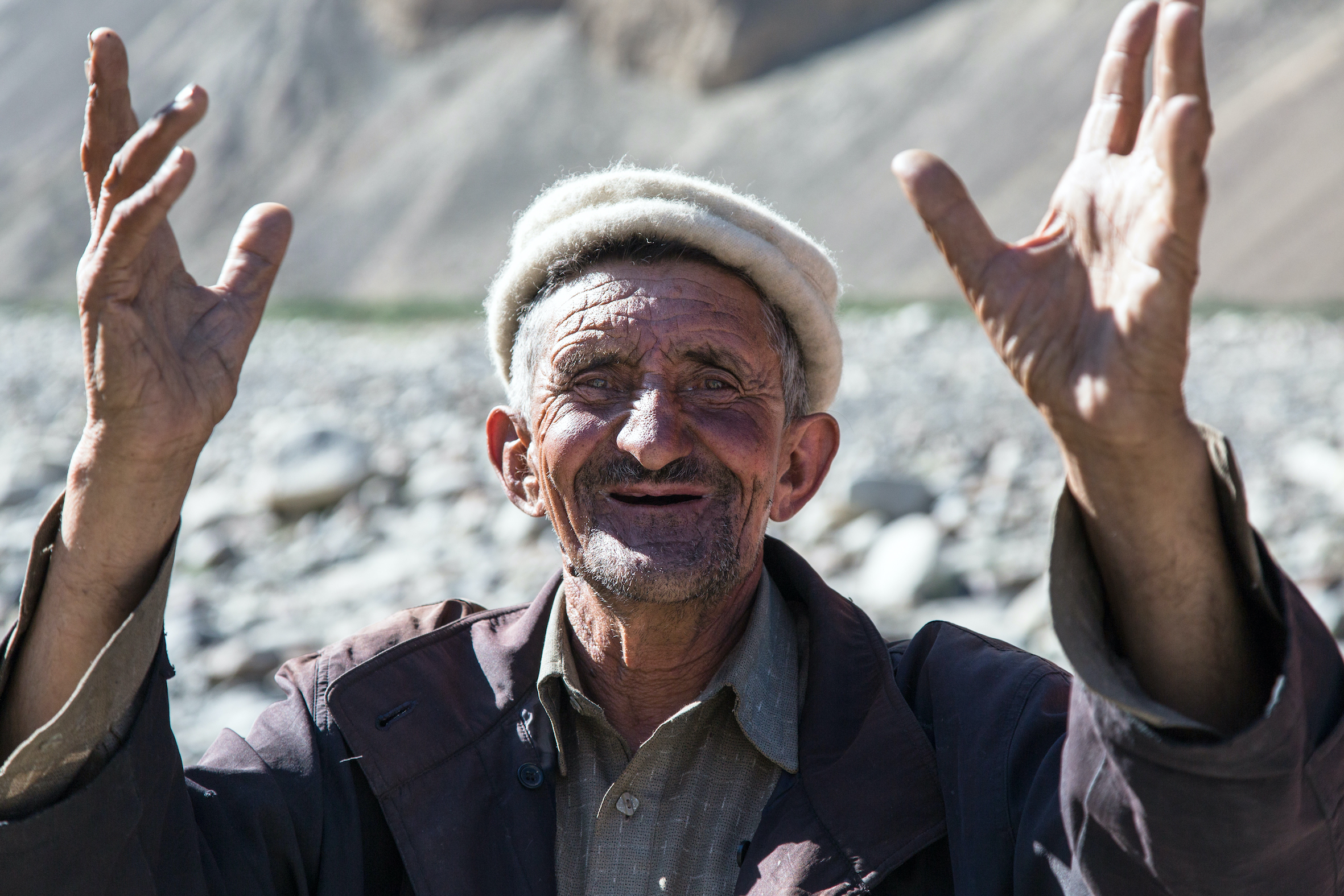
Guys, we’re in a bit of a pickle. We need you to get the helicopter. Can you repeat. Over. We haven’t had water for 2 days, get the helicopter.
We soon received news that this second summit push had failed, and we waited on news of the duos decent. Over Days 51 and 52 the weather worsened, and thick snow clouds covered our base camp. The quality of our walkie-talkie reception was interrupted, and conversations with Serg and Mat became a frustrating series of R2D2 like beeps and crackles.
On the evening of the second day we managed to obtain signal with Sergiu and Mat for a brief moment. ‘Guys, we’re in a bit of a pickle. We need you to get the helicopter.’ ‘Can you repeat. Over.’ ‘We haven’t had water for 2 days, get the helicopter.’

At this point I started to get the feeling that your body reserves strength for moments when decisions of great consequence have to be made in too little time. A kind of adrenaline mixed with determination. After about 10 minutes deliberation with our Pakistan team, Tim and I decided that I would head to Shimshal to reach Ali and his satellite phone (Ali had gone to get food supplies from the village). Tim would head to an advanced base camp (ABC), taking food and water with him.
I quickly gathered my things. I knew every minute counted. I started off for Shimshal with one of our Pakistani team Sher Ali. I was suddenly able to march fast. The walk to Shimshal had previously taken at least a day, but Sher Ali and I made the journey in less than 4 hours.
I found Ali and explained to him what happened. A grave expression came over his face. We started making phone calls – to the military, to the embassy, to our insurance, to Tim’s Dad in the UK. All the while our satellite phone credit was running out, which only added to the stress. With a helicopter no closer to arriving, we had 50c credit remaining…
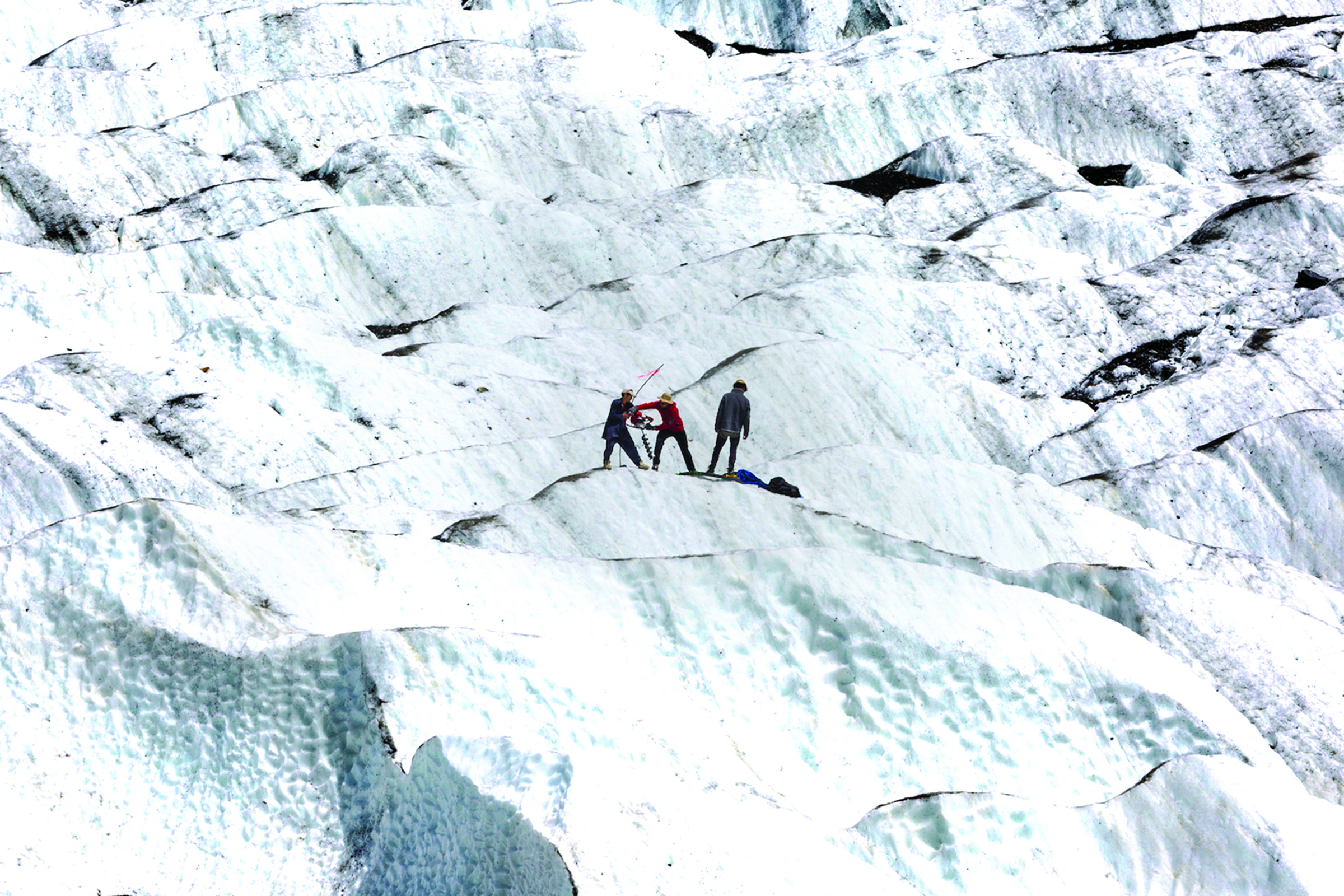
I was gripped by a feeling of powerlessness.
The great problem was that the Pakistani rescue helicopter service requires $10,000 in cash upfront before they launch a rescue. $10,000! I couldn’t quite believe the insanity of this situation. But they really won’t launch the helicopter until you give them $10,000. (You can take out a rescue loan prior to your expedition under a scheme with the Alpine Club of Pakistan. You’ll get the money back if you don’t use it, but you’ll be charged $400 for the privilege).
The time was now 11pm and all hope was dwindling. Ali made one last call. His friend, a man who also ran a mountaineering company answered. He had the money. After I personally guaranteed him that I would pay him back if our insurance failed, he agreed to go to the army base tomorrow with the cash. The helicopter would be sent.

I spent a sleepless night pacing back and forth at our home stay. I was gripped by a feeling of powerlessness – we had done all we could and now all there was to do was wait. Ali laid out climbing equipment in front of our room. His plan was for the helicopter to set down on the Shimshal cricket pitch. We were then going to board, before directing the helicopter driver towards the icefall. We would complete the rescue by winching Sergiu and Mat up to the helicopter (Ali told me that the helicopter would be a simple military helicopter, not a rescue helicopter, so wouldn’t have ropes on board).
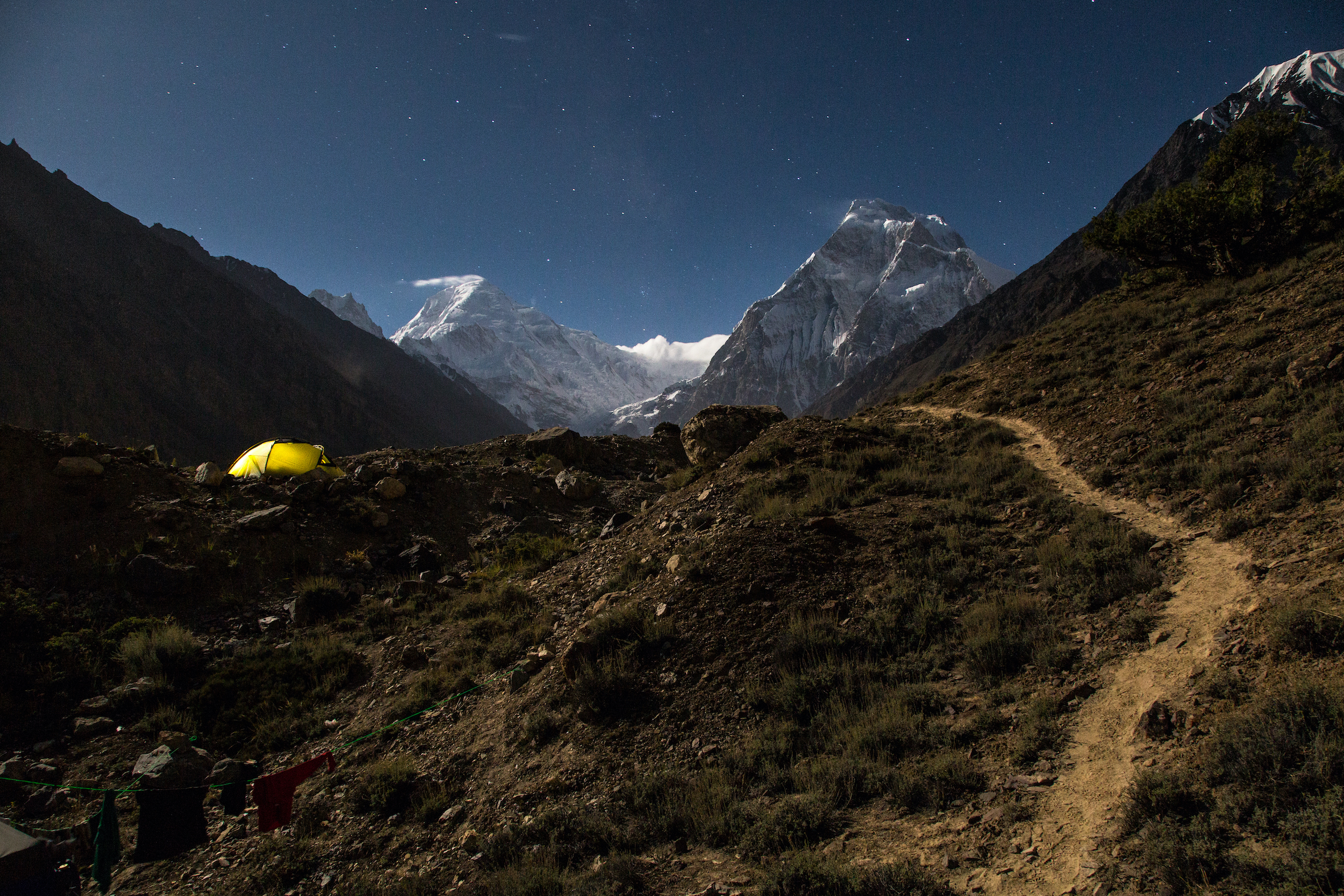
Dawn broke. Little changed except for the lifting of the darkness. We continued to wait. Ali’s friend called to say that he was on route to launch the rescue helicopter.
"Don’t launch!" he shouted, gesticulating wildly.
Then a strange thing happened. Ishuq appeared. He was waving his arms, shouting in Urdu and English. Sweat had soaked through his tattered mountain hardware fleece. "Don’t launch!" he shouted, gesticulating wildly.
Sergiu and Mat were safe. They had managed to descend the icefall to ABC after three days without food and water. I would later learn that a break in the weather had allowed them to orient themselves. The sun had melted the snow, revealing the location of the icefalls many crevasses. Tim had met Sergiu and Mat at ABC, nursing them with water and food. Tim radioed Ishuq, who ran from base camp to Shimshal to pass us the message.
And so the helicopter rescue was called off. Ali’s friend told us he was five minutes away from the helipad. Five minutes away from handing over $10,000. It was a lucky escape on our part. But I was past caring about the helicopter. Sergiu and Mat were alive, that was all that mattered.
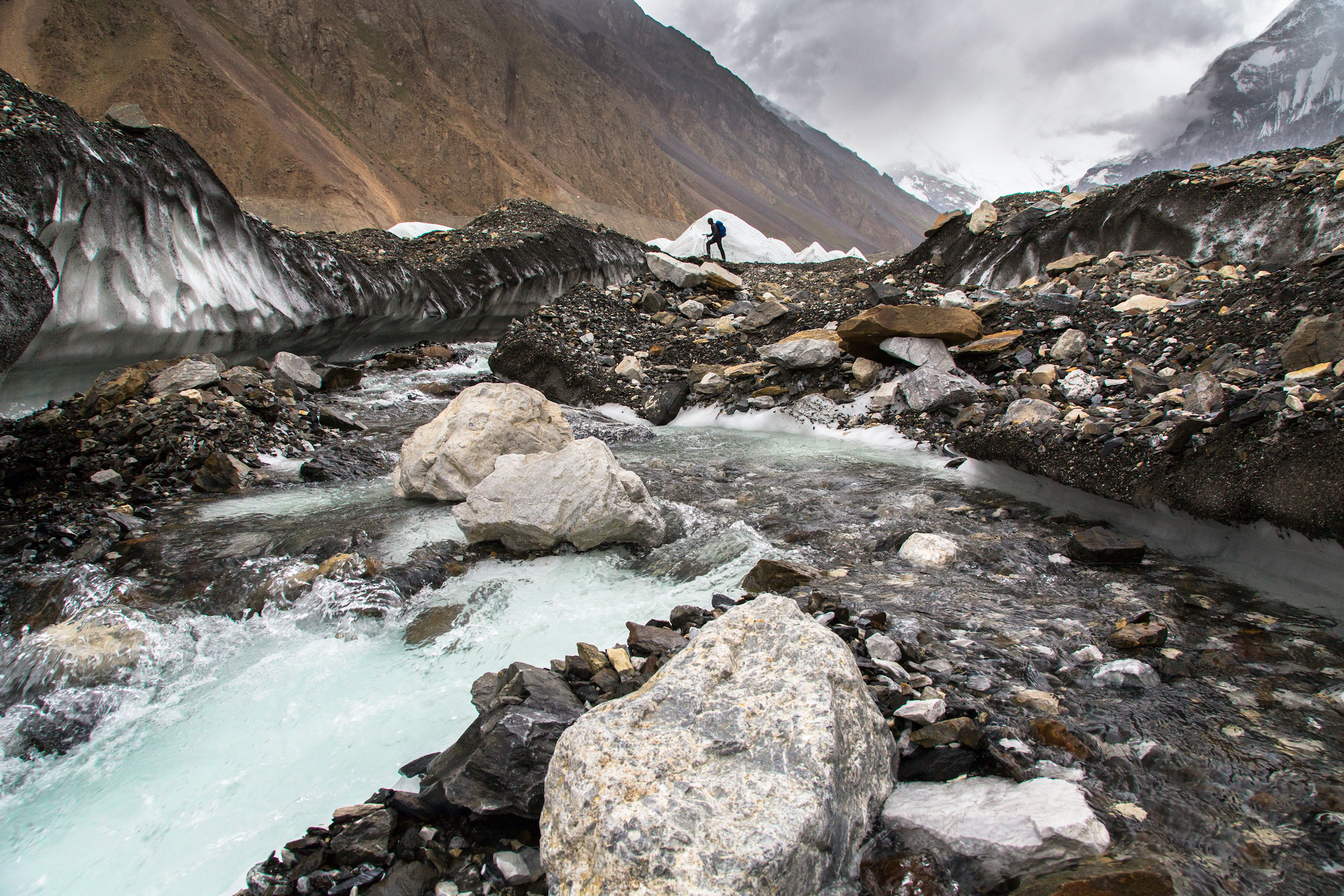
Their return was not quite as jubilant as it might have been.
Sergiu and Mat returned to Shimshal the following day. They were worn out. Their ribs were more prominent than before. Mat’s fingers had cracked from the cold. Raw wounds glared from the insides of his knuckles. I felt elated to see them both, but a tiredness shrouded the whole team. Their return was not quite as jubilant as it might have been.

Porters carrying the contents of our base camp trickled into Shimshal for the rest of the day. Our home for two months was reduced to a pile a rucksacks and barrels on the floor outside our guesthouse.
In the days that followed, we carried out a workshop with the people of Shimshal on glacial lake outburst flooding and the dangers they face. Having spent a month on Yukshin Gardan and Khurdopin glaciers, we were able to say with confidence that there is no immediate risk of a glacial lake outburst at the moment. It seems that in the past few years global warming has melted the glaciers, retreating their thick debris covered snouts away from the danger zone. Things change fast in the Karakoram though, and the glaciers need continual monitoring to assess how they are affecting the flood risk.
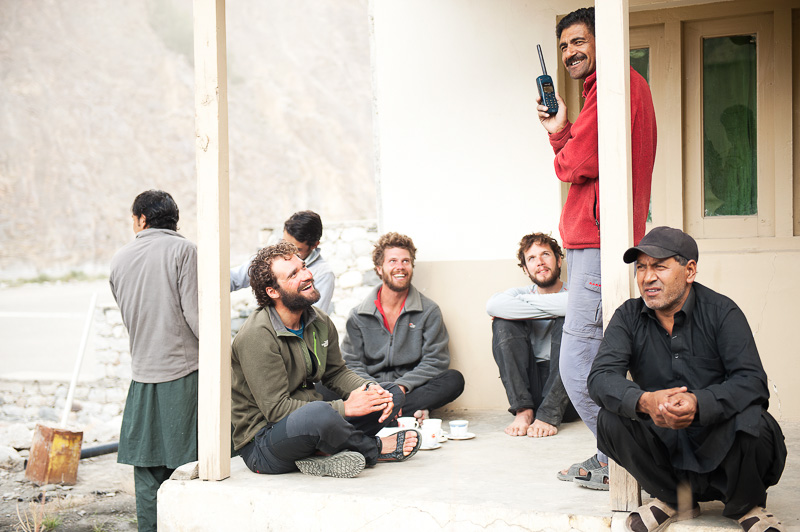
After the workshop our equipment was packed onto the roof of the very same Wallis Jeep we had arrived on two months ago. It was threshing season in Shimshal, and the dust shone brilliantly in the virgin rays of the morning sun. The village was a peaceful as ever, but Autumn had dulled the bright colours of summer.
As we left Shimshal behind, I struggled to imagine the maelstrom of water and ice that periodically shatters this delicate peace. As everyone on the Karakoram Anomaly Project had just learnt however, in the Karakoram beauty is always overshadowed by the looming threat of disaster.


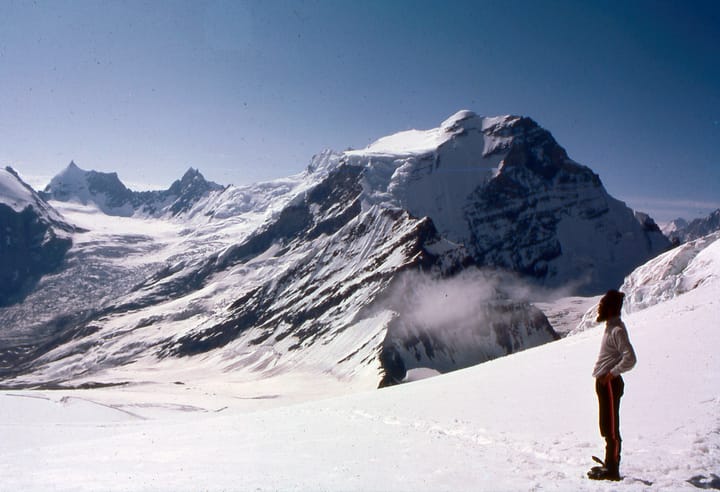
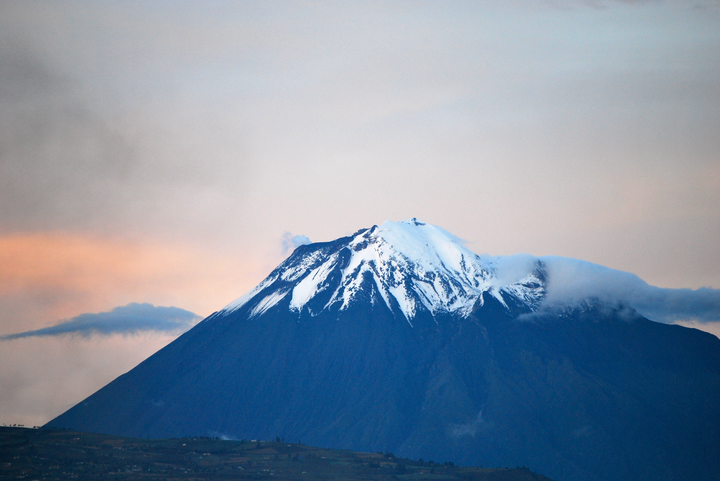
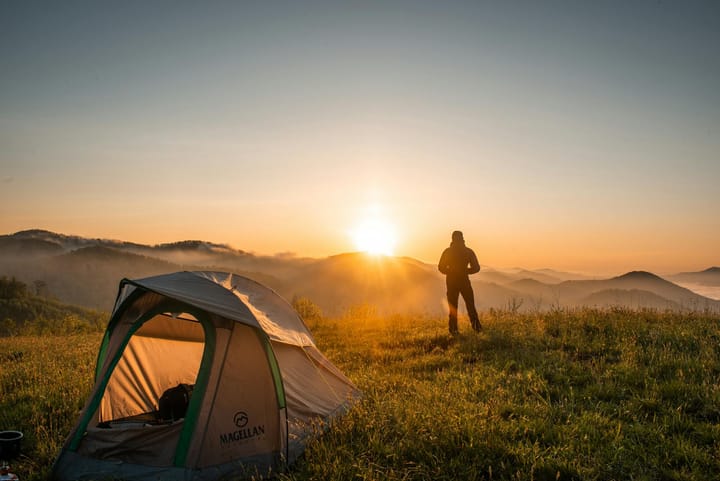
Comments ()